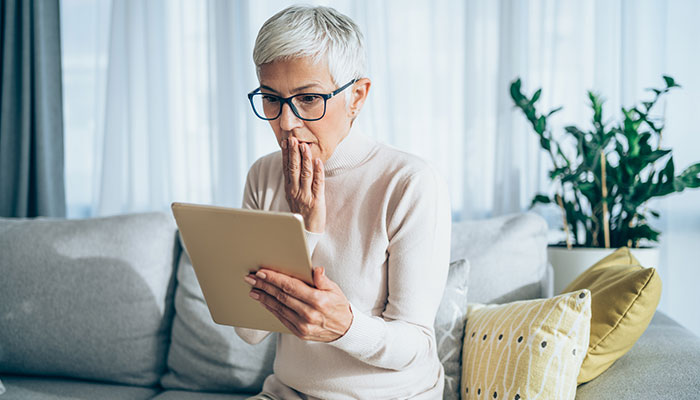The term ‘hypochondria’ relates to abnormal, chronic anxiety about one’s health. It was coined in the 16th century, but the Greeks had already recognised the problem at least 2,000 years ago. Someone suffering from hypochondria will imagine themselves to be ill when they are physically healthy, or will catastrophise small symptoms: a headache is almost certainly a fatal brain tumour, a slight cough must be lung cancer.

Information overload: thousands of health and wellbeing websites today can fuel people with anxiety to suffer from cyberchondria.
The urge for people to research their symptoms has been around long as there have been medical texts, but the Internet has meant an avalanche of information is only as far away as our smartphones. It has led to a relatively new phenomenon among people who are overly anxious about their health: ‘cyberchondria’ or ‘compuchondria’. Unfortunately, with thousands of health and wellbeing websites publishing information of varying quality every day, it has also never been harder to distinguish between good information and junk science.
Psychosomatic illness involves real symptoms, such as pain and bloating, that have no identifiable medical basis and is closely related to hypochondria where an individual has severe health anxiety, possibly even in the absence of symptoms. Psychosomatic symptoms originate in the brain, rather than the body, but the brain still believes they are real and therefore the individual’s suffering is real.
Pandemic anxiety pile on
Psychosomatic illness, and hypochondria and its offshoot cyberchondria all have anxiety as central features, but may also be associated with past trauma, such as a parent’s illness, or other triggers. People experiencing severe anxiety about their health are also likely to look at life through a darker lens, to be pessimistic and always think the worst, where another person with no triggers might be more likely to assume a less catastrophic cause of their symptom or illness.
Anxiety comes in varying levels of severity and is a relatively common mental health issue in Australia, with one in three women and one in five men likely to experience it at some stage in their lives. The pandemic has increased the number of people reporting anxiety, with isolation from family and friends, job stress, increased alcohol consumption, and worries over health, loss of employment, and home schooling all playing their part.

Mixed messages: the change from lockdown to living with COVID-19 has triggered anxiety in some people.
For some, the recent winding back of COVID-19 restrictions has been difficult to process. Having spent two years seeing even small outbreaks result in swift lockdowns, it can be hard for us to feel entirely comfortable going about our business even though case numbers are beginning to drop. This is especially relevant when we remember that until very recently, health authorities were urging us to isolate and get tested immediately if even the slightest cold-like symptoms appeared, making us vigilant for something we would once have shrugged off as no cause for concern.
A little anxiety is both understandable and protective during a pandemic, as it has encouraged us to follow public health orders, and take measures like limiting the number of people we interact with and avoiding crowded spaces. Thinking you feel a tickle in the throat after receiving a notification from the COVIDSafe app is surprisingly common; before the pandemic, the equivalent may have been imagining an itchy scalp if you heard a friend’s child had head lice.
- More supermarket diversity would ease supply disruptions
- Please explain: Why is the ancient Greek alphabet still in use today?
For most of us, these imagined symptoms are mild and quick to disappear. In severe cases, people may worry so much that they become unable to work and will spend thousands of dollars on doctors’ bills and tests as they try to find someone who can help them. If health anxiety has become an obsession that is affecting your quality of life by preventing you from doing the things you need and want to do, that is a good indication it has crossed the line into a pathological problem, and you need assistance to overcome it.
Where to get help
If you feel this describes you, a good place to start is to talk to a friend or relative. Once you put your fears into words, and observe the other person’s reaction, you may begin to realise your worries are not reasonable, and you may be able to begin to let them go. If this doesn’t help, talking to a psychologist is the best course of action.
Professor Mike Jones is a Professor of Psychology in Macquarie University’s School of Psychological Sciences and Associate Dean, Research Partnerships and Integration in the Faculty of Medicine, Health and Human Sciences
MindSpot, an online mental health service based at Macquarie University, can provide free support to anyone experiencing anxiety or a range of other issues.
If you are looking for reliable websites for health advice, begin with government health departments and agencies such as the Australian Department of Health or NSW Health, reputable medical research institutes, and official medical organisations and associations.



